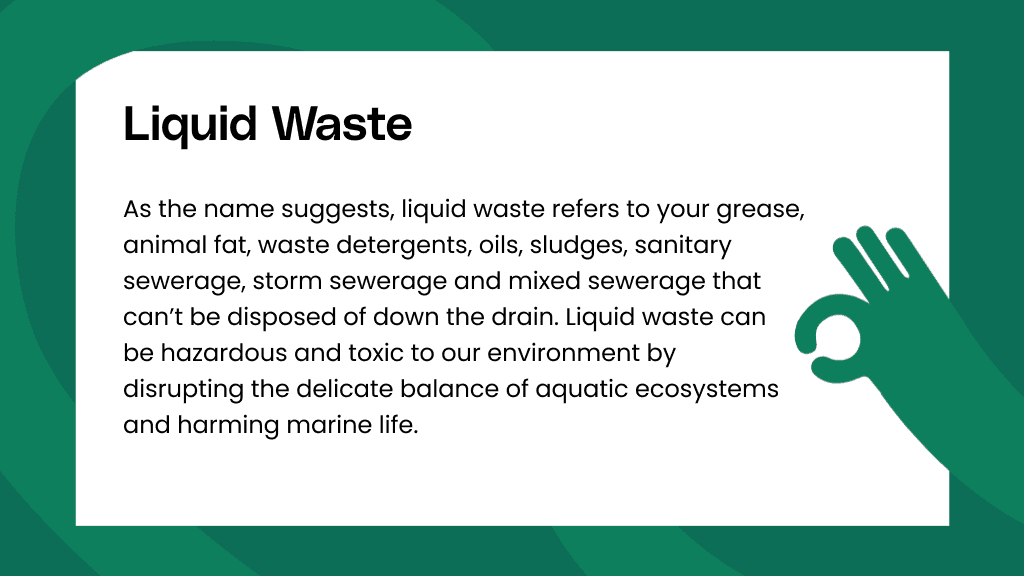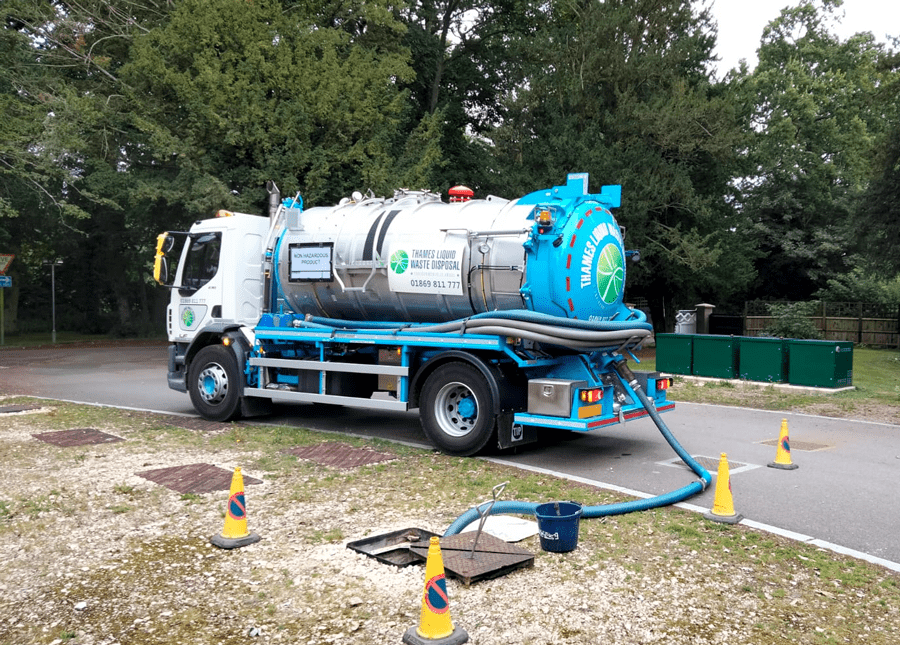Little Known Facts About Reclaim Waste.
Little Known Facts About Reclaim Waste.
Blog Article
Reclaim Waste Can Be Fun For Everyone
Table of ContentsHow Reclaim Waste can Save You Time, Stress, and Money.The Ultimate Guide To Reclaim WasteWhat Does Reclaim Waste Mean?Things about Reclaim WasteRumored Buzz on Reclaim Waste
Explore the kinds, incidents, and forms of fluid waste. Domestic sewage waste refers to the waste and products from a domestic septic system. This kind of waste is developed by people in homes, institutions, and other structures. This only consists of septic systems that have a drainpipe field. The correct management and disposal of domestic sewage waste require fluid waste to be moved to a sewer therapy plant where the correct techniques and devices are put on cleanse and take care of waste.
Industrial waste typically includes possible threats, such as combustible products or a mix of liquid and solid waste products, and requires an advanced and detailed disposal procedure. The disposal of business waste usually includes the purification of waste before transportation to guarantee risk-free and correct disposal. Hazardous waste is produced from results and drainage of commercial processes and production.
This kind of waste can not use the exact same sewer monitoring transport or processes as septic or business fluids. The commercial waste monitoring process needs the evaluation and testing of liquid waste prior to it undertakes the disposal procedure (liquid waste disposal melbourne). Runoff waste is the fluid waste that comes from overflow and excess stormwater in extremely inhabited areas or cities
Runoff waste can trigger contamination and flooding if not taken care of effectively. Ensuring appropriate waste monitoring can prevent catastrophes and lower environmental damage.
Reclaim Waste - Truths
Contact PROS Solutions today to find out concerning our waste monitoring and disposal solutions and the proper means to look after the fluid waste you generate.
(https://reclaimwaste1.carrd.co/)This supposed 'wastewater' is not only an essential resource but, after treatment, will be released to our land, waterways or the ocean. Made use of water from toilets, showers, bathrooms, cooking area sinks, laundries and commercial processes is understood as wastewater.

water used to cool down machinery or tidy plant and equipment). Stormwater, a type of wastewater, is runoff that streams from farming and city areas such as roof coverings, parks, yards, roads, paths and seamless gutters into stormwater drains pipes, after rainfall. Stormwater flows without treatment straight to neighborhood creeks or rivers, ultimately getting to the sea.
The Facts About Reclaim Waste Uncovered
In Queensland, most wastewater is treated at sewage treatment plants. Wastewater is transported from domestic or industrial sites through a system of drains and pump stations, recognized as sewage reticulation, to a sewer treatment plant. Local federal governments construct, keep and run most sewage therapy plants. Operators are certified under the Environmental Defense Act 1994 to discharge treated wastewater at an acceptable environmental standard into waterways.
The Division of Natural Resources suggests city governments concerning handling, operating and keeping sewage systems and therapy plants. In unsewered locations, neighborhood federal governments may need homeowners to install private or family sewer therapy systems to deal with domestic wastewater from bathrooms, kitchen areas, washrooms and laundries. The Division of Natural Resources authorizes making use of family systems when they are confirmed to be reliable.
In some brand-new neighborhoods, treatment of some stormwater to get rid of litter, sand helpful resources and crushed rock has begun making use of gross contaminant traps. Wastewater therapy happens in 4 stages: Gets rid of solid matter.
Makes use of tiny living organisms knows as micro-organisms to damage down and get rid of remaining dissolved wastes and great fragments. Micro-organisms and wastes are included in the sludge.
Reclaim Waste Can Be Fun For Anyone
Nutrient elimination is not readily available at all sewer treatment plants because it requires expensive specialized tools. Clear fluid effluent created after treatment might still have disease-causing micro-organisms - liquid waste disposal melbourne.

A lot of wastewater flows right into the sewerage system. Under the Act, neighborhood governments carry out authorizations and licences for eco pertinent activities (ERAs) entailing wastewater releases that could have a regional influence.
What Does Reclaim Waste Do?
Or else, examples are considered lab evaluation. Frequently lots of examinations are required to establish the levels of each of the different contaminants such as oils, hefty steels and chemicals in water. Monitoring offers accurate info concerning water quality and can verify that licence problems are being fulfilled. The info acquired via monitoring supplies the basis for making water top quality choices.
Report this page